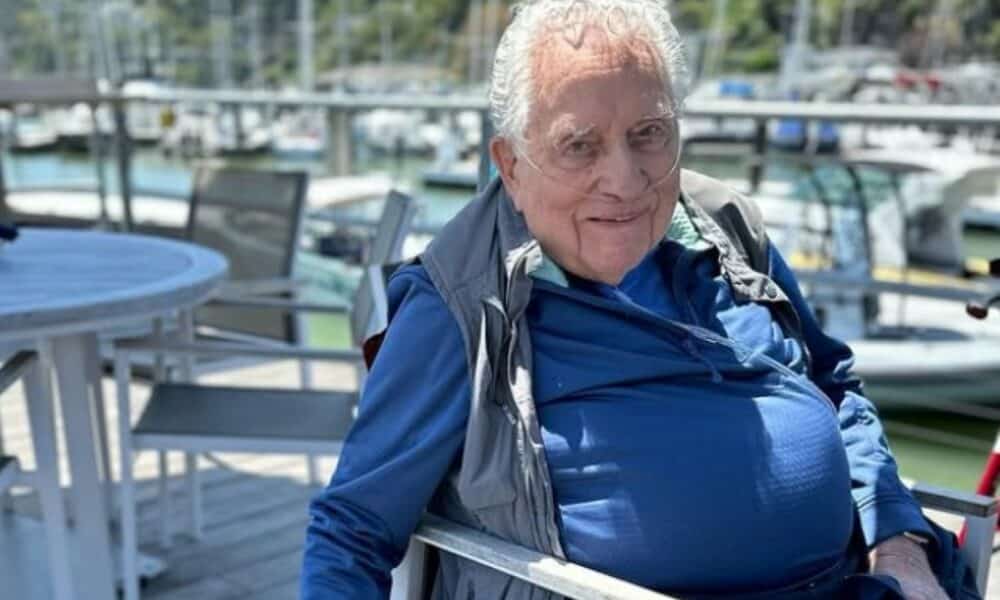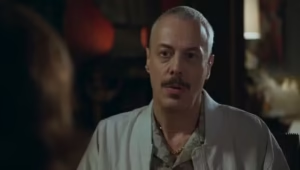Clint Hill, former United States Secret Service agent known for his heroic actions during the assassination of President John F. Kennedy in 1963, passed away at the age of 93 on February 21, 2025, at his home in Belvedere, California. His career was forever marked by one of the most tragic moments in U.S. political history when he attempted to protect the president and First Lady Jacqueline Kennedy during the attack in Dallas, Texas. The iconic image of Hill sprinting toward the presidential limousine, jumping onto the back of the moving vehicle, and trying to shield the Kennedy couple from further gunfire remains one of the most haunting visuals of the event. Despite his bravery, Hill carried a deep sense of guilt for not being able to prevent the president’s death, a burden he bore for the rest of his life.
Born on January 4, 1932, in Larimore, North Dakota, Hill was adopted by a Norwegian-American family and raised in Washburn. Known for his disciplined and dedicated nature, he earned a degree in history from Concordia College in Moorhead, Minnesota, in 1954 and later served in the U.S. Army before joining the Secret Service in 1958. Throughout his career, he distinguished himself in protecting presidents and first ladies, including Dwight D. Eisenhower and Jacqueline Kennedy.
His life took a drastic turn on November 22, 1963, in Dallas, Texas, when President Kennedy was shot. As the agent assigned to protect the First Lady, Hill reacted instantly to the gunfire, jumping onto the moving presidential limousine to shield her from further harm. The brutality of the attack and the helplessness in saving the president remained with him for decades.
The Day That Changed U.S. History
The assassination of John F. Kennedy on November 22, 1963, remains one of the most devastating moments in American political history. The president and the First Lady were traveling in a motorcade through Dallas, Texas, waving to the crowd, when gunshots rang out. Clint Hill, who was part of the security detail, reacted immediately upon hearing the shots. He sprinted from the follow-up car toward the presidential limousine, jumping onto the back of the moving vehicle to provide protection.
Footage of the incident showed Hill climbing onto the car’s trunk and reaching out for Jacqueline Kennedy, who was attempting to retrieve a fragment of her husband’s skull. Despite his quick response, the president was fatally wounded. Hill, overwhelmed by the tragedy, spent the following years struggling with the pain of failing to complete his mission.
Clint Hill’s Career and Impact on the Secret Service
Hill began his career with the United States Secret Service in 1958 and was assigned to protect President Dwight D. Eisenhower. In 1960, following John F. Kennedy’s election, he was designated as the primary agent for First Lady Jacqueline Kennedy, a role he fulfilled until 1964. His position required him to be in constant proximity to the First Lady, accompanying her on both domestic and international trips.
Secret Service agents undergo extensive training to respond rapidly to threats against the president and high-ranking government officials. Hill’s instincts were evident on the day of Kennedy’s assassination, as he reacted immediately to the gunfire, placing himself in danger in an attempt to protect the First Family.
Key Moments in Clint Hill’s Career
- 1958: Joins the U.S. Secret Service.
- 1960: Assigned to protect First Lady Jacqueline Kennedy.
- 1963: Attempts to shield President and Mrs. Kennedy during the assassination in Dallas.
- 1964: Continues serving in the Secret Service under President Lyndon B. Johnson.
- 1975: Retires due to the emotional toll of the assassination.
- 2012: Publishes his autobiography, detailing his experiences with the Kennedy family.
The Trauma and Its Aftermath
The death of President Kennedy had a lasting psychological impact on Clint Hill. For years, he struggled with intense guilt over his inability to prevent the assassination. In later interviews, Hill admitted that he battled long periods of depression and turned to alcohol as a way to cope with the pain. The weight of the tragedy was one of the main reasons he retired from the Secret Service in 1975.
In the following years, Hill remained out of the public eye, avoiding discussions about the assassination. However, he eventually found a way to share his memories. Starting in 2012, he published books detailing his time with the Kennedy family, including Mrs. Kennedy and Me and Five Days in November, co-authored with Lisa McCubbin, whom he later married.
The Bond with Jacqueline Kennedy
During his tenure with the Secret Service, Clint Hill developed a close professional relationship with Jacqueline Kennedy. As her lead agent, he accompanied her on numerous official trips and was present during some of the most significant moments of her public life.
- Accompanied Jacqueline Kennedy on official visits across Europe and Latin America.
- Provided security for the First Lady and her children following President Kennedy’s assassination.
- Maintained loyalty to the Kennedy family throughout his career.
Later Years and Belated Recognition
After years of staying out of the spotlight, Clint Hill began receiving more recognition for his role in history. His public appearances increased with the release of his books, in which he recounted details of the assassination and his experiences with the Kennedy family. In 2016, he was honored for his service to the country and was frequently interviewed to share his firsthand account of the tragic event.
Decades after Kennedy’s assassination, Hill remained one of the most sought-after sources for insights into that day. His account was considered one of the most authentic among those who were directly involved.
Legacy and Influence on Presidential Security
Clint Hill’s actions during the assassination of John F. Kennedy led to significant changes in U.S. presidential security protocols. Following the tragedy, the Secret Service implemented several measures to strengthen presidential protection.
Key security changes after 1963:
- Presidential limousines were modified with bulletproof armor.
- The presidential security detail was expanded with additional agents.
- Public travel protocols were revised to minimize exposure.
- Outdoor event security was significantly increased.
Hill’s legacy served as an example for future generations of Secret Service agents. His quick response and unwavering bravery were acknowledged as essential elements in the evolution of U.S. presidential security.
Final Years and Passing
Clint Hill passed away at the age of 93 at his home in Belvedere, California. He is survived by his wife, Lisa McCubbin, whom he married in 2021. His name will forever be etched in American history as the Secret Service agent who attempted to save John F. Kennedy, symbolizing courage, loyalty, and dedication to presidential protection.

Clint Hill, former United States Secret Service agent known for his heroic actions during the assassination of President John F. Kennedy in 1963, passed away at the age of 93 on February 21, 2025, at his home in Belvedere, California. His career was forever marked by one of the most tragic moments in U.S. political history when he attempted to protect the president and First Lady Jacqueline Kennedy during the attack in Dallas, Texas. The iconic image of Hill sprinting toward the presidential limousine, jumping onto the back of the moving vehicle, and trying to shield the Kennedy couple from further gunfire remains one of the most haunting visuals of the event. Despite his bravery, Hill carried a deep sense of guilt for not being able to prevent the president’s death, a burden he bore for the rest of his life.
Born on January 4, 1932, in Larimore, North Dakota, Hill was adopted by a Norwegian-American family and raised in Washburn. Known for his disciplined and dedicated nature, he earned a degree in history from Concordia College in Moorhead, Minnesota, in 1954 and later served in the U.S. Army before joining the Secret Service in 1958. Throughout his career, he distinguished himself in protecting presidents and first ladies, including Dwight D. Eisenhower and Jacqueline Kennedy.
His life took a drastic turn on November 22, 1963, in Dallas, Texas, when President Kennedy was shot. As the agent assigned to protect the First Lady, Hill reacted instantly to the gunfire, jumping onto the moving presidential limousine to shield her from further harm. The brutality of the attack and the helplessness in saving the president remained with him for decades.
The Day That Changed U.S. History
The assassination of John F. Kennedy on November 22, 1963, remains one of the most devastating moments in American political history. The president and the First Lady were traveling in a motorcade through Dallas, Texas, waving to the crowd, when gunshots rang out. Clint Hill, who was part of the security detail, reacted immediately upon hearing the shots. He sprinted from the follow-up car toward the presidential limousine, jumping onto the back of the moving vehicle to provide protection.
Footage of the incident showed Hill climbing onto the car’s trunk and reaching out for Jacqueline Kennedy, who was attempting to retrieve a fragment of her husband’s skull. Despite his quick response, the president was fatally wounded. Hill, overwhelmed by the tragedy, spent the following years struggling with the pain of failing to complete his mission.
Clint Hill’s Career and Impact on the Secret Service
Hill began his career with the United States Secret Service in 1958 and was assigned to protect President Dwight D. Eisenhower. In 1960, following John F. Kennedy’s election, he was designated as the primary agent for First Lady Jacqueline Kennedy, a role he fulfilled until 1964. His position required him to be in constant proximity to the First Lady, accompanying her on both domestic and international trips.
Secret Service agents undergo extensive training to respond rapidly to threats against the president and high-ranking government officials. Hill’s instincts were evident on the day of Kennedy’s assassination, as he reacted immediately to the gunfire, placing himself in danger in an attempt to protect the First Family.
Key Moments in Clint Hill’s Career
- 1958: Joins the U.S. Secret Service.
- 1960: Assigned to protect First Lady Jacqueline Kennedy.
- 1963: Attempts to shield President and Mrs. Kennedy during the assassination in Dallas.
- 1964: Continues serving in the Secret Service under President Lyndon B. Johnson.
- 1975: Retires due to the emotional toll of the assassination.
- 2012: Publishes his autobiography, detailing his experiences with the Kennedy family.
The Trauma and Its Aftermath
The death of President Kennedy had a lasting psychological impact on Clint Hill. For years, he struggled with intense guilt over his inability to prevent the assassination. In later interviews, Hill admitted that he battled long periods of depression and turned to alcohol as a way to cope with the pain. The weight of the tragedy was one of the main reasons he retired from the Secret Service in 1975.
In the following years, Hill remained out of the public eye, avoiding discussions about the assassination. However, he eventually found a way to share his memories. Starting in 2012, he published books detailing his time with the Kennedy family, including Mrs. Kennedy and Me and Five Days in November, co-authored with Lisa McCubbin, whom he later married.
The Bond with Jacqueline Kennedy
During his tenure with the Secret Service, Clint Hill developed a close professional relationship with Jacqueline Kennedy. As her lead agent, he accompanied her on numerous official trips and was present during some of the most significant moments of her public life.
- Accompanied Jacqueline Kennedy on official visits across Europe and Latin America.
- Provided security for the First Lady and her children following President Kennedy’s assassination.
- Maintained loyalty to the Kennedy family throughout his career.
Later Years and Belated Recognition
After years of staying out of the spotlight, Clint Hill began receiving more recognition for his role in history. His public appearances increased with the release of his books, in which he recounted details of the assassination and his experiences with the Kennedy family. In 2016, he was honored for his service to the country and was frequently interviewed to share his firsthand account of the tragic event.
Decades after Kennedy’s assassination, Hill remained one of the most sought-after sources for insights into that day. His account was considered one of the most authentic among those who were directly involved.
Legacy and Influence on Presidential Security
Clint Hill’s actions during the assassination of John F. Kennedy led to significant changes in U.S. presidential security protocols. Following the tragedy, the Secret Service implemented several measures to strengthen presidential protection.
Key security changes after 1963:
- Presidential limousines were modified with bulletproof armor.
- The presidential security detail was expanded with additional agents.
- Public travel protocols were revised to minimize exposure.
- Outdoor event security was significantly increased.
Hill’s legacy served as an example for future generations of Secret Service agents. His quick response and unwavering bravery were acknowledged as essential elements in the evolution of U.S. presidential security.
Final Years and Passing
Clint Hill passed away at the age of 93 at his home in Belvedere, California. He is survived by his wife, Lisa McCubbin, whom he married in 2021. His name will forever be etched in American history as the Secret Service agent who attempted to save John F. Kennedy, symbolizing courage, loyalty, and dedication to presidential protection.







